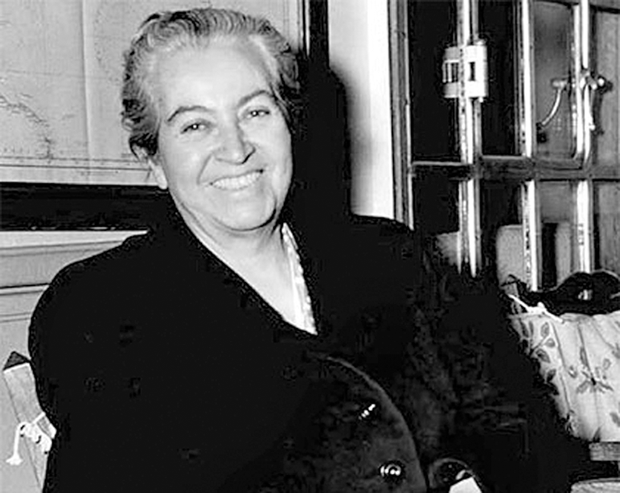Happy Hispanic Heritage Month!
Posted on
Happy Hispanic Heritage Month (Sept 15 - Oct 15! This month celebrates the histories, cultures, and contributions of Americans with ancestry in Spain, Mexico, South and Central America, and the Caribbean. The observance begins today, September 15, to commemorate the anniversary that Costa Rica, El Salvador, Guatemala, Honduras, and Nicaragua gained independence from Spain. Join us this month as we celebrate with a special series: Hispanic/Latinx Voices in Education!
 A Chilean author and educator, Gabriela Mistral became the first Latin American author to receive the Nobel Prize in literature. She boldly advocated for the rights of women, children, and many other groups facing challenges in her community.
A Chilean author and educator, Gabriela Mistral became the first Latin American author to receive the Nobel Prize in literature. She boldly advocated for the rights of women, children, and many other groups facing challenges in her community.
Gabriela was born in 1889 in a small town in the Chilean Andes Mountains. She grew up in the nearby village of Monte Grande, where her creativity was by nature, her family, and religion. In 1906, Gabriela was denied admission to the Normal School in La Serena because teachers thought she wrote like a “troublemaker.” In response, Gabriela published the 1906 article “La instrucción de la mujer” (The education of women) that spoke about the limits placed on women’s education.
In 1910, Gabriela was able to each her teaching certificate by studying on her own and passing the examination. She began a successful career as an educator and administrator, teaching across different regions of Chile. In 1918, Gabriela was appointed principal of the Liceo de Niñas (High School for Girls) in Punta Arenas, the southernmost Chilean port, where she was in charge of reorganizing the institution while far away from the rest of the country. She also organized important initiatives, including evening classes for workers who could not attend or afford school. During this time, she wrote many poems inspired by her experiences being separated from her family.
In 1921, Gabriela became principal of a new and prestigious school in Santiago, Chile, and continued actively pursuing a literary career writing poetry and prose. A year later, Gabriela published her first book, Desolación, and began traveling and lecturing outside of Chile. She traveled to Mexico after the Mexican Revolution, where she helped in the planning and reorganization of rural education. She also wrote for and edited Lecturas para mujeres (Readings for women), an anthology of poetry and prose selections from classic and contemporary writers.
In 1925, Gabriela became the secretary of the Latin American section in the League of Nations in Paris. Now a well-known and admired poet, she continued traveling and teaching classes across the world and at various colleges including Columbia University and Barnard College. In 1945, while in Brazil, Gabriela learned she had been awarded the Nobel prize in literature. In 1951, she also received the Chilean National Prize in literature.
Gabriela lived across the world, moving between countries and continents until finally settling in the United States in Roslyn Harbor, Long Island. While in her last years, Gabriela served as Chilean representative to the United Nations and was an active member of the Subcommittee on the Status of Women. Of Gabriela's work, Ursula K. Le Guin writes, “What she was above all was a poet, self-taught, almost wholly self-made, who worked constantly, tirelessly, all her life, at her craft.”
Learn more about Gabriela here.
Back to Blog
